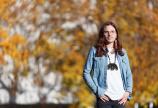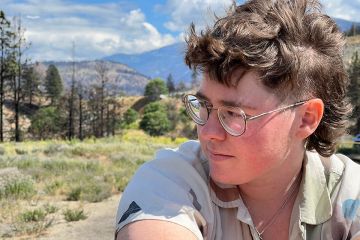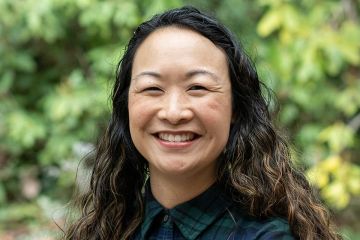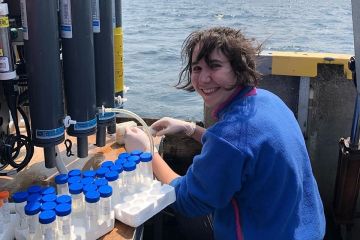IGOV grad pushes for inclusive future in academia
- Stephanie Harrington
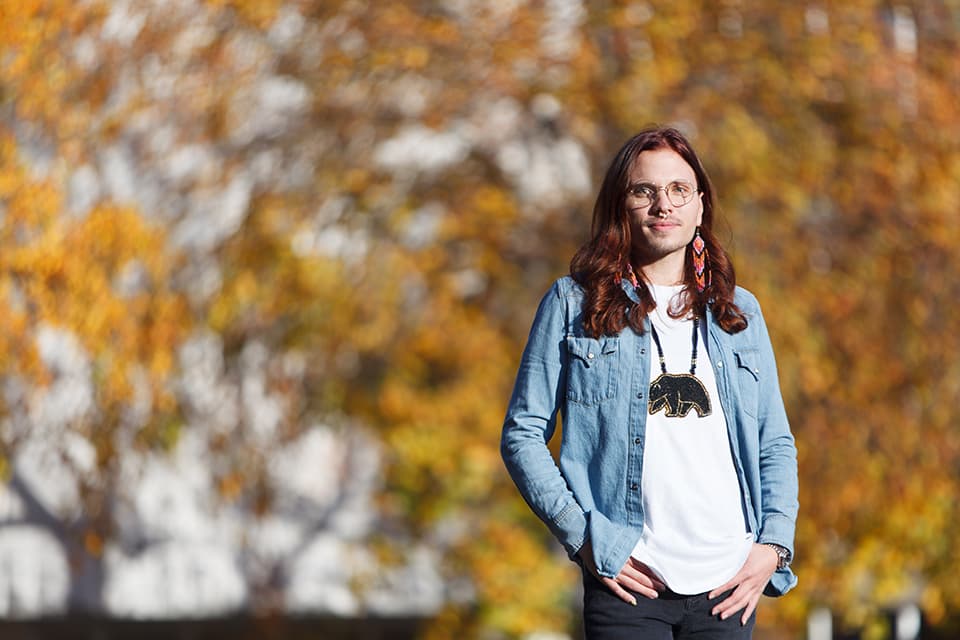
Michael Chutskoff embraces multiple identities. They dream of a future where people like them—an Indigenous, queer, neurodivergent and two-spirit person—can flourish in academia.
Chutskoff, who is Cree/Métis from Treaty 5 territory in Manitoba on their mother’s side and European settler on their father’s, grew up in Abbotsford. This month they will cross the stage at convocation as the first student to graduate from the University of Victoria’s renewed MA in Indigenous Governance (IGOV).
Although Chutskoff grew up disconnected from their culture, IGOV helped accelerate their journey of reconnection.
Inspired by their studies in IGOV, Chutskoff started a PhD in September in political science, examining an under-researched but important issue: the roles and contributions that queer, two-spirit and trans people make to Indigenous decolonial movements.
“I am in a rare position as an Indigiqueer two-spirit person in academia,” Chutskoff says. “I have the ability to harness the full potential of my lived experiences and my academic training to perform research that speaks to the realities of my community.”
Chutskoff credits IGOV’s supportive environment and faculty members Hōkūlani Aikau, Gina Starblanket, Dawn Smith and Heidi Kiiwetinepinesiik Stark for steering them in a direction they hadn’t imagined. It was IGOV’s strong leadership from women faculty members that drew Chutskoff to apply to the program in the first place.
“The faculty really pushed me to consider all aspects of myself and how I view the world,” Chutskoff says. “It’s refreshing to be engaged in such a way and have an environment where that growth is allowed and fostered.”
From making national and global connections while helping plan an Indigenous feminism forum under Starblanket’s guidance to participating in land-based learning activities in Smith’s class, Chutskoff praised the breadth of experiences the master's degree offered. They read a lot of material encompassing issues around Indigenous sovereignty, land-based governance and Indigenous feminism in particular.
“The material was really engaging. It was quite diverse,” Chutskoff says.
Early on in the program, Chutskoff decided they wanted to pursue a PhD. They said IGOV awakened them to the power of using their lived experience in research to push back against colonial narratives that marginalize LGBTQ2+ people.
“I've experienced exclusionary behaviour in Indigenous communities because of my identity. It's frustrating because we’re all fighting together toward the same goal,” Chutskoff says. “I know I’m not alone. I want to be able to expand that conversation in my academic work.”
IGOV Acting Director Hōkūlani Aikau says IGOV’s renewed program pays close attention to Indigenous feminism and gender and sexuality in terms of the diversity of its students, the theoretical and methodological approaches in course materials, and for Indigenous governance practices. IGOV professors encourage students to bring their lived experiences into their studies, she says.
“One of the things we recognize is that for many Indigenous people, the academic work is always already personal,” Aikau says.
For Aikau, stories like Chutskoff’s show why this work is rewarding. Chutskoff came to IGOV as an Indigiqueer person who was unclear of their future plans, she says. Two years later, they are in a PhD program planning to examine queer Indigenous political histories.
“That's a huge transformation, and it’s a really beautiful thing to witness and be a part of,” Aikau says.
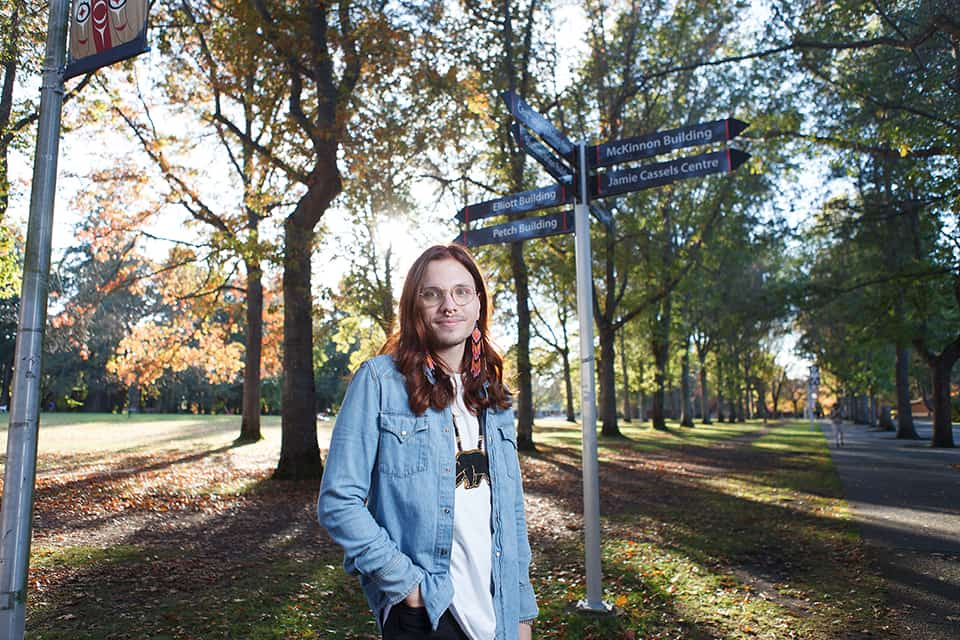
Chutskoff, meanwhile, says they chose UVic for their PhD because of the concentration of talented Indigenous scholars here, including political science Assistant Professor Kelly Aguirre, their new supervisor.
“There is a burgeoning field of Indigenous scholars here,” Chutskoff says. “It’s really exciting.”
Eventually, Chutskoff would like to become a scholar like the professors who have inspired them, coming full circle in their own journey. Although Chutskoff recognized the inherent biases in higher education against people who are queer, Indigenous or neurodivergent, they’re determined to make change.
“My goal is that I want to make academia inclusive for people like me,” Chutskoff says.
“I want to be a faculty member in an environment where I'm able to teach and support students who have a life journey like mine.”
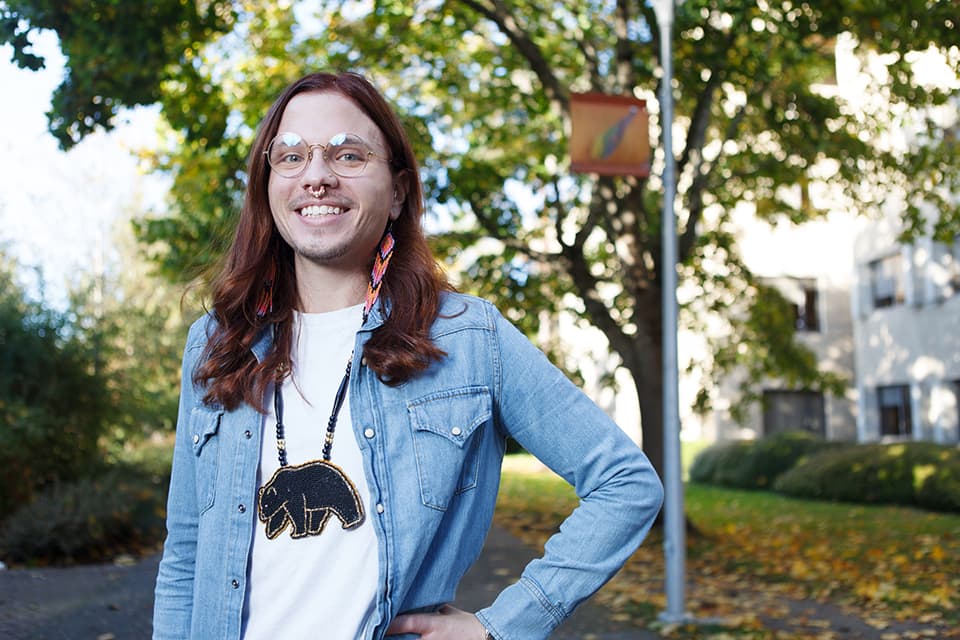
Photos
In this story
Keywords: convocation, Indigenous, government
People: Michael Chutskoff

